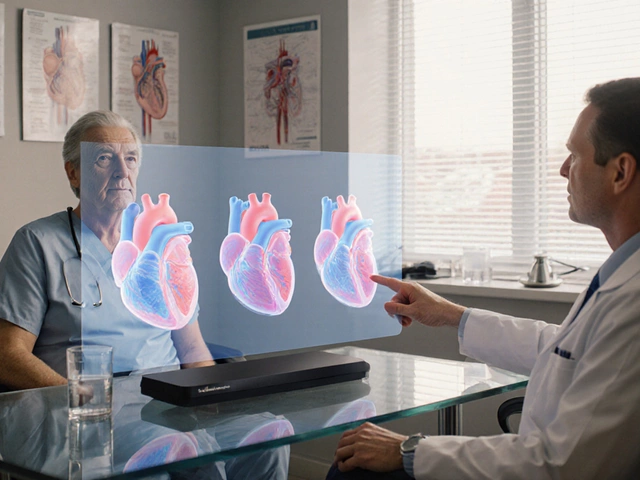Nerve Treatment: Simple Steps to Ease Pain and Keep Nerves Healthy
If you’ve ever felt tingling, numbness, or burning pain, you know how annoying nerve issues can be. The good news is that most nerve problems can be managed with everyday habits and a few medical tricks. Below you’ll find clear, bite‑size advice you can start using today.
Know What’s Going On With Your Nerves
First, figure out the type of nerve trouble you have. The most common ones in India are peripheral neuropathy (often linked to diabetes), sciatica (lower‑back nerve irritation), and carpal tunnel (wrist compression). Symptoms usually include:
- Sharp or burning pain
- Sudden numbness or tingling
- Weakness in the affected limb
- Loss of coordination
If you notice these signs for more than a couple of weeks, it’s time to get a check‑up. A doctor can rule out serious conditions like nerve compression from a tumor or infection.
Quick Home Remedies That Actually Work
Before you reach for medication, try these low‑cost tricks:
- Warm‑cold therapy: Alternate a warm pack (10‑15 minutes) with an ice pack (5 minutes). The contrast helps reduce inflammation and soothes pain.
- Gentle stretch: Simple moves like ankle rolls or shoulder rolls improve blood flow to the nerves. Do them 3‑4 times a day.
- Massage: Light kneading along the affected area can loosen tight muscles that are pressing on nerves.
- Mindful posture: Sit upright with shoulders back. Bad posture puts extra pressure on the spine and can aggravate sciatica.
These habits take just a few minutes but can cut down the urge to reach for painkillers.
When Medicine Is Needed
If home care isn’t enough, doctors often prescribe:
- Anti‑inflammatory drugs (ibuprofen, naproxen) for swelling.
- Gabapentin or pregabalin for nerve‑specific pain.
- Vitamin B‑complex supplements, especially if diabetes is involved.
Always discuss side effects with your physician. Some pills can cause drowsiness, so plan dosages around your daily routine.
Physical Therapy and Specialized Treatments
Physical therapists teach you targeted exercises that strengthen muscles around the nerve, reducing pressure. For severe cases, options include:
- Laser therapy – low‑level lasers boost circulation and speed healing.
- Ultrasound – sound waves warm deep tissues and lessen pain.
- Injection therapy – corticosteroid shots can calm intense inflammation.
These procedures are usually done in a clinic and require a referral.
Long‑Term Lifestyle Tweaks
Keeping nerves healthy is a marathon, not a sprint. Here are habits that pay off over months:
- Control blood sugar: High glucose damages nerves. Aim for a balanced diet with whole grains, legumes, and plenty of veggies.
- Stay active: Walking, swimming, or yoga keep blood flowing and prevent stiffness.
- Avoid smoking and excessive alcohol: Both impair nerve regeneration.
- Wear supportive shoes: Good footwear cushions the feet and reduces pressure on peripheral nerves.
Stick to these changes, and you’ll notice fewer flare‑ups.
In short, nerve treatment doesn’t have to be complicated. Start with warm‑cold therapy, stretch daily, and check your posture. If pain sticks around, let a doctor guide you toward medicines or physical therapy. Pair that with smart lifestyle choices, and you’ll give your nerves the best chance to heal and stay strong.






